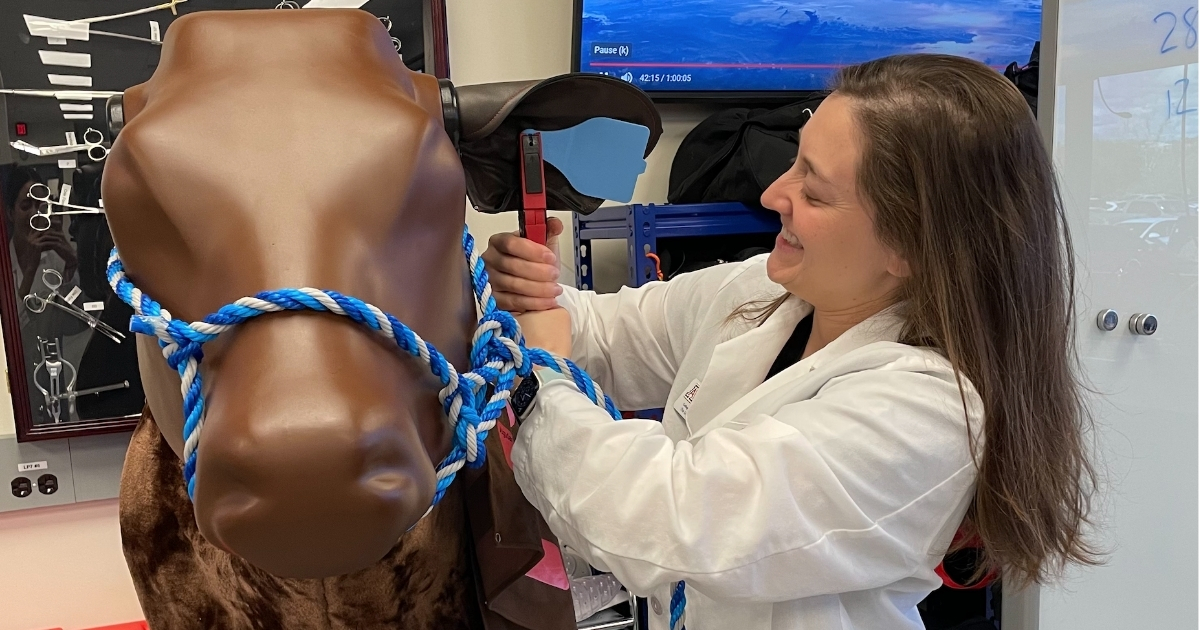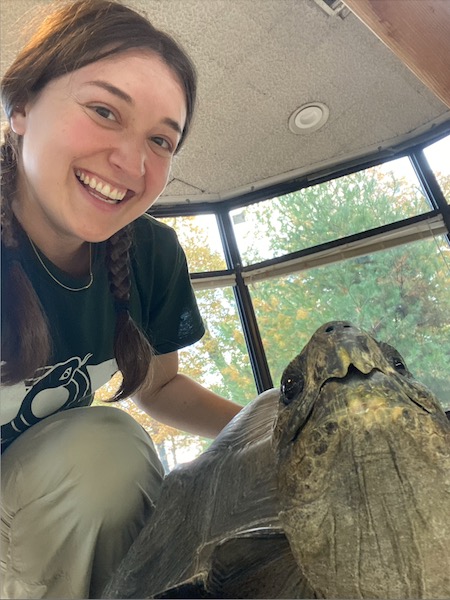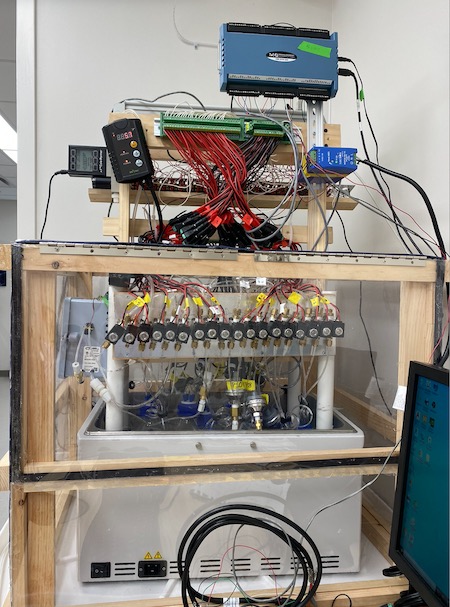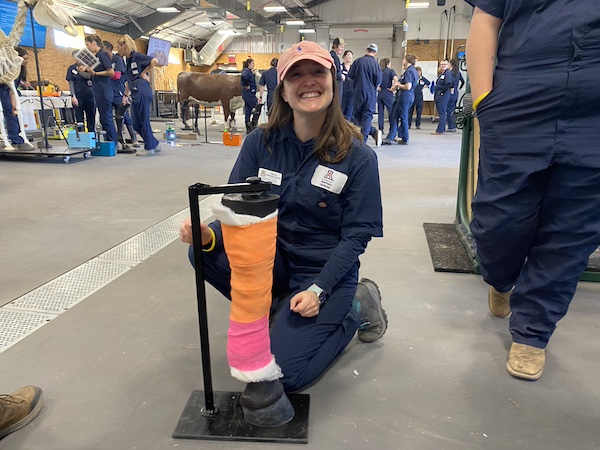
Category: Alumni

UD animal science graduate degree launches Gloria Andrade-Feraud into veterinary school
March 12, 2024 Written by Molly Schafer | Photos courtesy of Gloria Andrade-Feraud
University of Delaware alumna Gloria Andrade-Feraud is a student in the Doctor of Veterinary Medicine (DVM) program at the University of Arizona.
After changing careers and a false start at another graduate school, Andrade-Feraud attended UD’s non-thesis M.S. in Animal Science program.
“Without UD, getting into veterinary school would’ve taken me much longer. And I might not have been accepted at all,” Andrade-Feraud said. “UD gave me the leg up that I needed.”
The one- to two-year non-thesis master’s program with a concentration in Veterinary Biosciences, Biotechnology, and One Health (VBBOH) is primarily for individuals wishing to become more competitive for professional programs or industrial research positions. For Andrade-Feraud, it was the ideal program to redirect her career.
I'd never done any coursework with animals before...The classes helped solidify my plan to attend vet school.
Andrade-Feraud was originally planning on medical school, but when it came time to study for the Medical College Admission Test (MCAT), her heart wasn’t in it.
“I learned how to do origami. I learned Morse code. I was doing everything except studying for the MCAT,” Andrade-Feraud admitted.
When she confided in a friend that she’d prefer to go live on a farm, they suggested she go to veterinary school instead. Andrade-Feraud took the advice to heart. She got a job at a veterinary clinic and immediately fell in love with the world of veterinary medicine.
"I’d never been inside of a vet clinic before,” emphasized the Blue Hen alumna. “But after a couple of hours, I knew that becoming a veterinarian was my goal.”
Andrade-Feraud had a bachelor’s degree in biology from Penn State University, which provided her with some of the prerequisites for veterinary school.
“But I was missing experience, especially since I switched my career plan,” said Andrade-Feraud, who graduated from UD in 2022.
“I’d never done any coursework with animals before,” Andrade-Feraud noted. “At UD, I took Immunology of Domestic Animals (ANFS636) and Advanced Ruminant Nutrition (ANFS654). The classes helped solidify my plan to attend vet school.”
After transferring to UD from another master's program, Andrade-Feraud was encouraged by the smaller class size, accommodating faculty, and the helpful UD community.
“At UD, the professors were excited to teach us. And that made me excited, too. Everyone was happy to be there.”
Andrade-Feraud commuted to UD from Philadelphia; her dog, who could not be left home alone, made the trip alongside her. She needed a dog sitter while she attended classes and found a willing student through UD’s Animal Science Club.
”Everyone was very kind regardless of the circumstances,” says Andrade-Feraud, who attended UD during the pandemic. ‘Even when COVID kept us separated. I never felt I was on my own.”
Andrade-Feraud fondly recalls trips to Home Depot to gather materials for her individual research experience, a three-credit requirement of the non-thesis master’s program. The project involved measuring the intestinal gasses of horses in real time to learn how efficiently they were digesting various foods. But before the research could begin, Andrade-Feraud had to recreate a machine built by Hong Li, associate professor of animal science.


“Dr. Li created this machine in his garage during COVID,” Andrade-Feraud said. “And we built a second one with his instruction. It was definitely out of my wheelhouse; a good challenge.”
Her perseverance paid off when it came time to write an essay for her veterinary school applications.
“The assignment was to write about something you did that was challenging,” Andrade-Feraud laughed. “I wrote about building the machine.”
Andrade-Feraud emphasizes how the non-thesis master's program prepared her for veterinary school.
“I just finished my immunology class, and we covered the pathways of complement activation,” Andrade-Feraud states. “I thought, I know those pathways! I learned them in my Immunology of Domestic Animals (ANFS436) course at UD.”

"It would’ve been a lot more difficult starting my first semester without this previous knowledge from the non-thesis master's program.”
One of Andrade-Feraud’s favorite memories from UD is visiting the UDairy Creamery for an ice cream cone before driving home to Philadelphia. She made a habit of carrying the exact change in her pocket.
After completing her master’s degree, Andrade-Feraud interned at the Staten Island Zoo. She worked in the zoo’s animal hospital, where she was especially fond of the tortoise patients.
The three-year Doctor of Veterinary Medicine (DVM) program at the University of Arizona provides Andrade-Feraud with a team-based learning experience.
”Learning how to work with a team,” she said, “is what veterinary medicine is all about.”
